Emergency Dentistry
Urgent Relief for Your Aching Smile
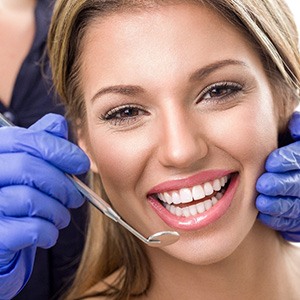 True, you can’t always plan for or avoid emergencies. They're unexpected by nature and quite tricky to sidestep. However, Beautiful You Dental can at least help you with urgent oral care. Our team is great at emergency dentistry and will see you on short notice. That way, you’re able to skip the time, money, and hassle of an ER visit. So, contact us soon and visit for your crucial dental needs!
True, you can’t always plan for or avoid emergencies. They're unexpected by nature and quite tricky to sidestep. However, Beautiful You Dental can at least help you with urgent oral care. Our team is great at emergency dentistry and will see you on short notice. That way, you’re able to skip the time, money, and hassle of an ER visit. So, contact us soon and visit for your crucial dental needs!
Why Choose Us for Emergency Dental Care?
- Same-Day Appointments Available
- Warm & Welcoming Dental Team
- Dental Insurance Friendly & Flexible Financing Welcome
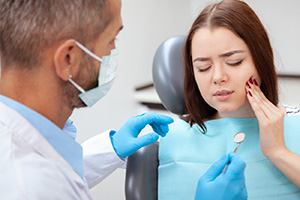
How We Treat Dental Emergencies
Are you facing a dental emergency for the first time? If so, don’t panic; our office can walk you through how we’ll handle it. In particular, here’s what to expect from our urgent care process:
- Same-Day Appointment – Once you contact us, we’ll book you for the earliest possible visit. (You may even see us the same day you call!) While you wait for the appointment, our team can also give you first-aid tips over the phone.
- Emergency Exam – When you arrive for the visit, Dr. Nowacki will perform a precise oral exam. This step lets him confirm the source and extent of your dental issue. Similarly, it helps him relieve your pain.
- Review Findings – Dr. Nowacki will share his findings with you after the exam. In doing so, he’ll also suggest possible procedures. He’ll then draft a custom treatment plan based on your feedback. (We’ll explain the estimated cost and timeline before you commit to anything.)
- Crucial Care – Of course, our team will work quickly to address your smile issue. They’re ready to handle whatever oral problems you face. Whether you need a filling, crown, or root canal therapy, expect great results.

The Most Common Dental Emergencies
In truth, some dental emergencies are more common than others. These “typical” ones occur more often than the rest. For this reason, you should see us when facing one. The reality is that our dental team is well-equipped to handle common oral problems. We’ll get your smile back on track in no time at all! With that said, please call us if you have any of the following:
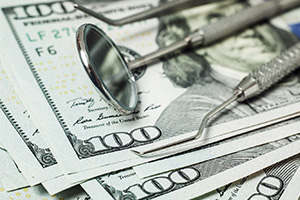
Understanding the Cost of Dental Emergencies
While you may want urgent oral care, its price likely concerns you. Fair enough – you shouldn’t trade a dental problem for a financial one. Even so, the cost of pediatric dental emergencies varies by patient. You’ll need to consult Dr. Nowacki to get the precise estimate. From there, we’ll strive to make your emergency visit affordable. Our team can also detail the role of insurance and other payment options.
Keys to Preventing Dental Emergencies

Dental emergencies can usually happen when you least expect them. While they aren’t always completely avoidable, you can practice certain steps that can lessen your risks of experiencing one. To help you prevent dental emergencies from starting in the first place, our team at Beautiful You Dental can share several essential tips. By following the five methods below, you can ensure your pearly whites stay safe and healthy for many years to come!
Visit Your Dentist Routinely

One of the best ways to maintain your oral health and avoid more serious complications is to schedule routine checkups with your dentist. By visiting them every six months or sooner, they can monitor your teeth, gums, and soft tissue to confirm there aren’t any underlying or developing issues. If they detect any signs of concern, they’ll be able to provide the necessary treatment to stop the problem from becoming worse over time. For example, a small cavity that isn’t visible to you can potentially lead to an emergency trip later on. With early preventive care, you can avoid it altogether.
Maintain Good Oral Hygiene At Home
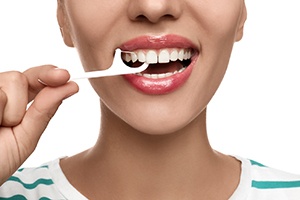
In between your dental appointments, you’ll need to practice proper oral hygiene at home. Brushing twice a day, flossing daily, and rinsing with mouthwash often can go a long way in preventing urgent situations with your smile. It’s especially important to clean around your gum line and between your pearly whites, as bacteria and plaque buildup can increase your risk of other serious health issues, like gum disease and infections.
Stick to a Nutritious Diet

Most of us are aware of how sugary treats are detrimental to our oral health. By overindulging in snacks like candy and energy drinks, you provide fuel for destructive bacteria that can gradually wear down your teeth and cause inflammation in your gums. However, consuming products that are high in carbohydrates and starches can be just as harmful to your smile as sugary food. To help avoid dangerous bacteria from feeding on your enamel, be sure to incorporate healthier meal options like lean proteins, whole grains, and fresh fruits and vegetables. This way your teeth, gums, and bone tissue stay stronger in the long run.
Wear a Mouthguard
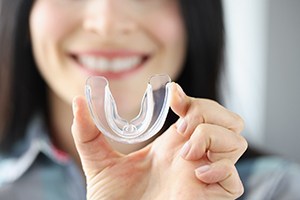
Do you tend to grind or clench your teeth while sleeping? While this isn’t on you, you must avoid wearing down your enamel, which can make your smile more vulnerable to bacteria. To protect your teeth, feel free to ask our team about nightguards for bruxism. With these custom-designed trays, you’ll be able to rest easy as well as protect your smile. Likewise, if you enjoy playing contact sports and want to avoid getting a breaking or knocking out a tooth, reach out to us about athletic mouthguards. We’ll be able to recommend the best products to address your specific dental needs!
Use Tools, Not Your Teeth, to Open Packages

It can sometimes be tempting to just rip open a box, envelope, or even a bottle cap with your teeth for convenience's sake. However, one wrong bite or twisting movement can easily cost you a trip to your emergency dentist, which may require you to reach deep into your wallet for restorative treatment. To save you time, money, and precious teeth, make sure you have the appropriate tools nearby.
Frequently Asked Questions
Got questions about dental emergencies? We’ve got answers. Keep reading for our handy dental emergency FAQ!
What is a dental emergency?
 To put it briefly, a dental emergency is anything that is bleeding, has broken, or is causing you pain in your mouth. It is something that requires prompt if not immediate treatment from a professional -- in most cases, that means a dentist.
To put it briefly, a dental emergency is anything that is bleeding, has broken, or is causing you pain in your mouth. It is something that requires prompt if not immediate treatment from a professional -- in most cases, that means a dentist.
Should I Go to an Emergency Room for a Dental Emergency?
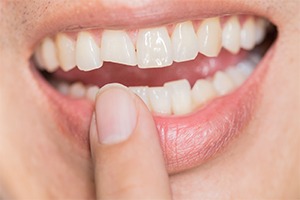 In the majority of cases, a dentist is better equipped to handle a dental emergency than the emergency room. Visiting the ER when it is not completely necessary can lead to expensive bills and delayed treatment times. However, if you have broken a bone in your mouth or are bleeding uncontrollably for 10 minutes or more, you should head straight to the emergency room.
In the majority of cases, a dentist is better equipped to handle a dental emergency than the emergency room. Visiting the ER when it is not completely necessary can lead to expensive bills and delayed treatment times. However, if you have broken a bone in your mouth or are bleeding uncontrollably for 10 minutes or more, you should head straight to the emergency room.
Can a Toothache Get Better On its Own?
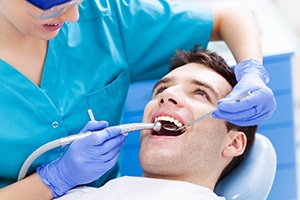 Usually not. A good rule of thumb is this: healthy teeth do not hurt. If you are experiencing a toothache, get in touch with our dental office right away. An infection in a tooth can quickly worsen and spread throughout your body, putting your overall health at risk.
Usually not. A good rule of thumb is this: healthy teeth do not hurt. If you are experiencing a toothache, get in touch with our dental office right away. An infection in a tooth can quickly worsen and spread throughout your body, putting your overall health at risk.
Why is My Child’s Tooth Aching?
A child may complain of discomfort in the mouth when something is stuck between the teeth. If your little one has a toothache, first help them brush, floss, and rinse their mouths. If pain persists, get in touch with the dentist right away.
 Beautiful YouDental
Beautiful YouDental